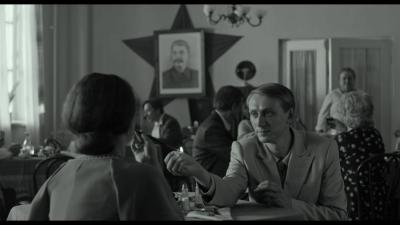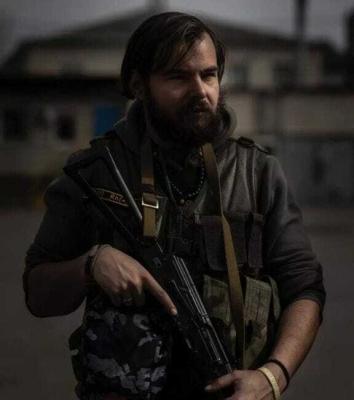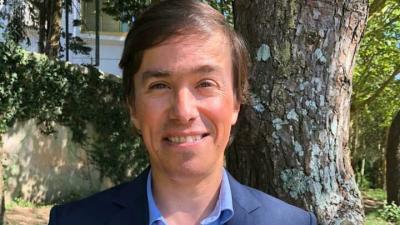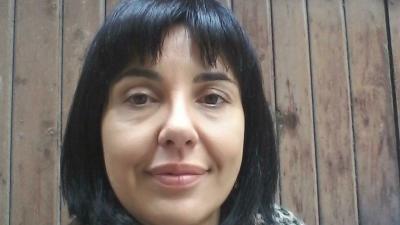The Holodomor is a genocide that has become better known as a result of the Russian invasion of Ukraine, but when the crime was committed almost a century ago, the world did not know or did not want to know, and only a few voices, such as the journalist Gareth Jones or the Austrian engineer Alexander Wienerberger, dared to denounce the barbarity committed by Stalin.
Faced with such a tragedy, it is hard not to wonder what those who were in a privileged social position within the communist system did: where were the Ukrainian intellectuals? The Ukrainian film “Slovo House. Unfinished Novel”, directed by Taras Tomenko in a project that took ten years to see the light of day, answers this question.
Kharkiv was the capital of the Ukrainian Soviet Socialist Republic from 1923 to 1934 and the center of a policy of “Ukrainization” that saw a revival of Ukrainian culture. This movement produced a large number of works and publications in the Ukrainian language, but later became known as the “Shooted Revival”. The cultural upheaval caused many communist writers to flock to the capital, which had a serious housing problem, and the authorities decided to build a series of apartments to house them. Designed in 1927, the construction of Slovo House would not be completed until December 1929, thanks to funds provided by Stalin. The building was designed in the shape of ‘С’, which is the first letter of the Ukrainian word слово (slovo), meaning ‘word’; the word house was born.
The sixty-six private apartments of the Slovo House had nothing to do with the living conditions of the proletarians, who mostly lived in communal houses with shared kitchens, and offered amenities reserved for the party elite. The apartments had several bedrooms, work studios, bathrooms, central heating, telephones, even a rooftop solarium for sunbathing and a kindergarten in the basement. Writers also had access to radios and the latest typewriters. Within this bubble, writers could create works that praised the achievements of real socialism and the achievements of the proletariat. Of course, as in all areas of the Soviet regime, the creativity and lives of writers were closely monitored, and the house was full of microphones placed in lamps and walls. The movie uses a fictional character to portray a failed writer who decides to spy on his colleagues, but in reality they were all spied on by their own colleagues, their wives, and the staff of the house.
Mykola Khvylovy, was the main representative of this generation of Ukrainian writers. His writings, published in the leading publications of the time, caused a great controversy and the so-called “Ukrainian literary discusión” of 1925-1928. Khvylovy posed the crucial question of which direction Ukraine’s political and cultural orientation should take: “Europe or ‘enlightenment’?”, understanding by “enlightenment” the backwardness of Ukraine under Russian rule. Khvylovy asserted that “for art it can only be Europe,” and coined the slogan that would make him most famous: “Far from Moscow.” Stalin personally intervened in the matter, condemning Khvylovy’s Western orientation as “bourgeois nationalism.” Forced to admit his “mistakes,” the writer left Ukraine and lived in Berlin and Vienna until March 1928. Before returning, he sent a letter to “Komunist” newspaper in which he recanted his views.
Like the other residents of Slovo House, Khvylovy soon realized that the Communist paradise was in fact a hell of searches, beatings, and NKVD black vans at night. The first arrest was that of Halyna Mnevska, in January 1931, for refusing to turn in her husband, Klym Polishchuk, who was later shot in Karelia. Halyna paid for her loyalty with five years in prison. More arrests followed in March, and the number of arrests increased in a spiral of fear until the fateful year of 1933. Rumors of the Holodomor reached Case Slovo, and Khvylovy left the building to learn the truth. What he saw caused him to burn his last novel, and he claimed that the famine was aimed at “solving the Ukrainian question”. On May 13, Khvylovy invited writers Olesya Dosvitnyi and Mykola Kulish to his house, told them he would show them how a proletarian writer should behave, and then shot himself. The residents of Kharkiv began to call the Slovo building the “crematorium”.
The residents of forty of the sixty-six apartments were arrested for “anti-Soviet activities” and all sorts of crimes against the state. Black vans took the unfortunates to NKVD cells, where they were beaten and tortured. Thirty-three people were executed and five were sentenced to long prison terms. Physical disappearance was followed by intellectual disappearance, the works of banned writers were canceled, and an entire generation of writers disappeared. With the transfer of the capital of the Ukrainian SSR to Kyiv, the Slovo House became less and less important, and the surviving writers left Kharkiv.
With the collapse of the USSR and the independence of Ukraine in 1991, the banned writers came out of the archives and their works saw the light of day again thanks to a policy of restoring national memory. The Slovo House regained its former role and once again became a residence for writers, where literary events were held. However, this cultural life was again interrupted by Moscow’s order, because since the invasion in February 2022, shelling is the new reality in Kharkiv. In March this year the Slovo House was severely damaged in a Russian attack. History is repeating itself, but now the slogan “far from Moscow” is engraved on millions of Ukrainians.
Read also
Francisco Floro: 'Basically, this invasion is about the reconstruction of the former Soviet space'.
Interview with Francisco Floro, Spanish volunteer in Ukraine.
Álvaro Peñas
Interview with José de Carvalho: 'Portuguese history is not a crime'
José António Ribeiro de Carvalho is a history professor and researcher. A regular contributor to national and regional newspapers on politics, ideology and education, he is the author of several books.
Álvaro Peñas
Growing problems for the Soviet Federation
In a message on social media, Donald Trump claimed that Russia’s economy is crumbling and that he would do it the favour of allowing it to end a “stupid” war that should not have started.
Álvaro Peñas
“Chechnya lives under a regime of terror where dissent is not allowed”: An interview with Marta Ter Ferrer
In Chechnya there is such absolute control that opposition is impossible. Criticising Kadyrov can result in a beating, public humiliation or even having your relatives’ house burned down.














Comments (0)